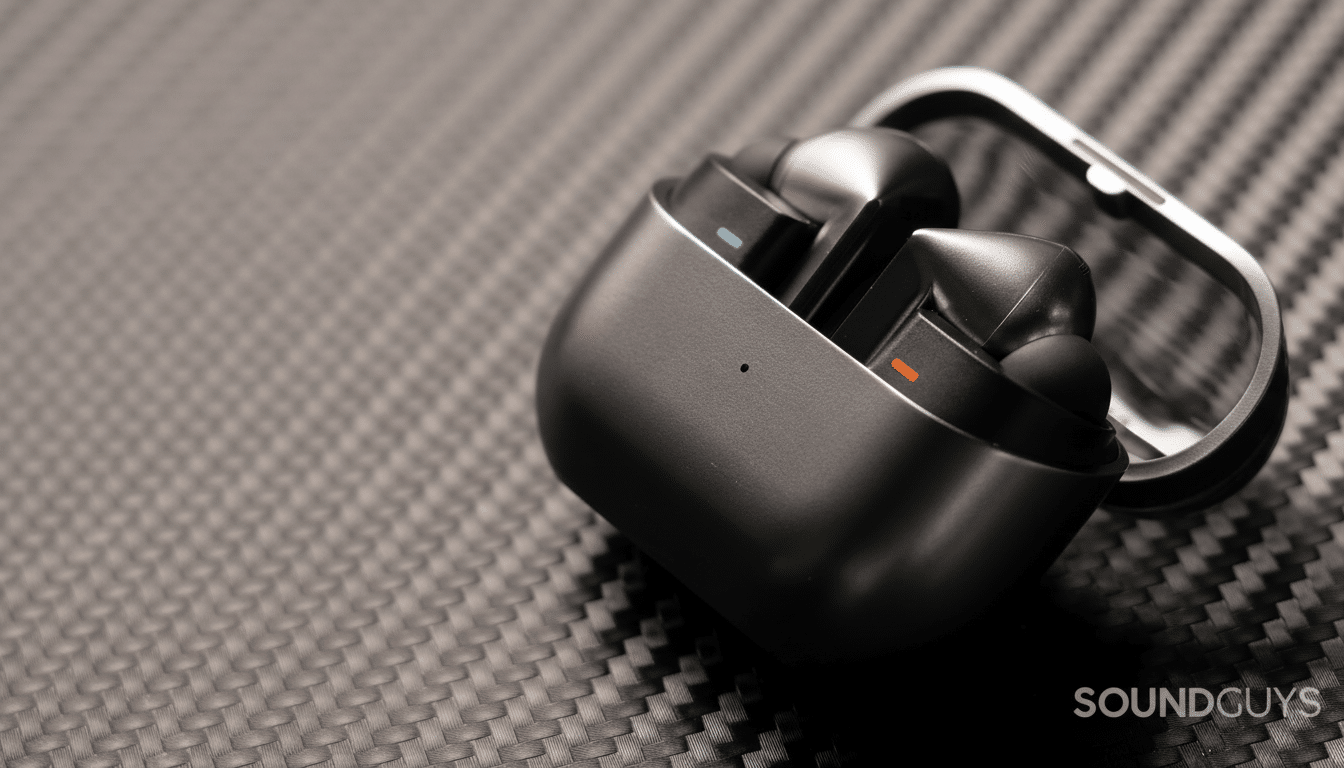Now, a leaked build of One UI 8.5 has appeared with strings specifically referring to “Galaxy Buds 4” and “Galaxy Buds 4 Pro,” giving us our first solid software confirmation that Samsung’s next flagship earbuds are coming. Digging through the code are model numbers that fit neatly within Samsung’s existing numbering structure, at least giving us an early—albeit conservative—look at what’s on the way for its upscale audio range.
First in the code mention of Buds 4 series
Strings discovered when third-party smartphone app devs tore into a presumed One UI 8.5 build hint at support for two new audio products – the Galaxy Buds 4 and the Galaxy Buds 4 Pro.
- First in the code mention of Buds 4 series
- Model numbers align with Samsung’s roadmap
- What this says about the timing of Samsung’s next earbuds
- Features to watch if you want to gauge your anxiety based on precedent
- Why this leak matters to the wider TWS market
- Bottom line: what the One UI 8.5 leak signals for Buds 4

Those references generally show up in Samsung system components or accessory services weeks to months ahead of a launch, which means the new hardware can recognize and pair and manage features as soon as it’s released. It’s the first — and frequently most robust — indication that a product is transitioning from planning to pre-release integration.
Model numbers align with Samsung’s roadmap
The code hints at SM-R540 for Galaxy Buds 4 and SM-R640 for the Galaxy Buds 4 Pro. That mapping follows neatly the Galaxy Buds 3 and Buds 3 Pro designations (SM-R530 and SM-R630), cementing Samsung’s pattern of progression — base and Pro models are divided by 100, while each new generation steps up by increments of 10. Previous devices such as the Buds2 Pro (SM-R510) and Buds FE (SM-R400) also make sense in that context, which means the R540/R640 is likely the direct successor to Samsung’s flagship buds after all.
(Model numbers alone don’t confirm the specs or anything, but they do clear up positioning.) In its praxis, R6xx codes are normally for additional features and upper end, while R5xx is some kind of “standard premium” or plain old mid-range. Spotting one and the other side-by-side in One UI 8.5 suggests Samsung is brewing an even refresh, not a slow rollout.
What this says about the timing of Samsung’s next earbuds
Accessory hooks in a mid-cycle One UI build tend to signify that development is pretty far along. In previous cycles, Samsung earbuds have made it into software before certification filings appear in public databases like the Bluetooth SIG, FCC, and Korea’s National Radio Research Agency. Those filings normally arrive a few weeks before retail availability, not months, so the upcoming breadcrumbs to look for are regulatory certifications and updated assets inside Galaxy Wearable.
There have been murmurs that Samsung might be spreading out audio launches more intentionally, to sync with larger ecosystem updates. Whether that joint launch happens or whether Buds 4 and Buds 4 Pro receive their own standalone reveal, the One UI 8.5 traces do seem to suggest Samsung is aiming for full software parity on release day — especially concerning device-to-device handoff features, spatial audio, and voice services.
Features to watch if you want to gauge your anxiety based on precedent
Look for a refinement-first cycle rather than a radical redesign. The Buds 3 lineup set the gold standard for adaptive ANC and introduced more aggressive beamforming; a new generation will probably tune those systems even further, specifically when it comes to cutting wind noise, keeping transparency sounding transparent, and ensuring stability in congested radio environments.

Speaking of codecs, Samsung is betting on its own Seamless Codec for playback of high-res audio on Galaxy phones, and adding support for LE Audio and LC3 to enhance robustness and low latency. With One UI 8.x, among other features, more system-level audio controls, Auracast support, and improved multi-device switching ought to be table stakes on both Buds 4 models. Battery efficiency gains are also an understandable assumption, given recent Qualcomm/Bluetooth LE enhancements and Samsung’s iterative history.
Software-enabled conveniences are the differentiator.
Look for tighter hooks in voice and on-device AI features — like live call enhancements, auto-summarization of notifications read aloud, or more contextually relevant noise control presets — all things that Samsung has been sewing into One UI. Such additions will need the OS and accessory services to be synchronous, which would mean we see the very first hints in firmware.
Why this leak matters to the wider TWS market
Worldwide true wireless shipments are still huge and increasing. According to industry trackers like Counterpoint Research, the TWS annual volumes are now in hundreds of millions with the premium segment growing faster than entry-level. Samsung is always on the list of top vendors by revenue outside Apple’s ecosystem, and its earbuds will be a linchpin for “stickiness” across Galaxy phones, tablets, watches, and TVs.
A simple, generational refresh — combined with the inclusion of One UI 8.5 — sets up Samsung to defend share against aggressive competitors chasing spatial audio, higher-bitrate codecs, and AI-driven features. Close ecosystem benefits such as Auto Switch, snappy pairings, and Galaxy-specific high-res playback will continue to play a big part of that approach.
Bottom line: what the One UI 8.5 leak signals for Buds 4
The One UI 8.5 leak is the first substantial breadcrumb for Galaxy Buds 4 and Buds 4 Pro, which comes in the form of model numbers SM-R540 and SM-R640 that line up with Samsung’s existing roadmap. The specs are unconfirmed, but the software timing points to an accessory refresher that doubles down on ANC, LE Audio, and ecosystem smarts. Keep an eye on Bluetooth SIG and regulatory filings next — those will be the telltale signs that the new Buds are getting ready to launch.

